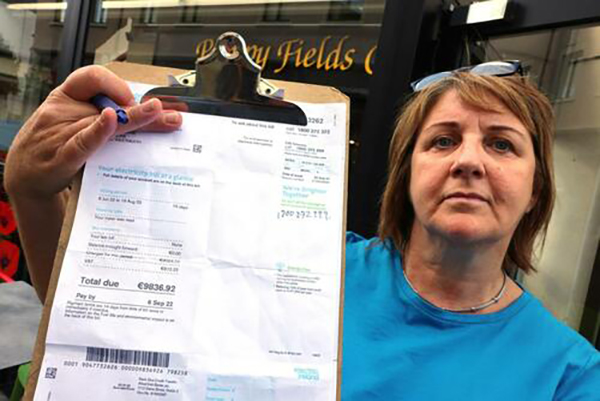45% of American households experiencing financial hardship thanks to Biden era inflation
12/06/2021 / By Cassie B.

With holiday shopping in full swing and temperatures dropping, 45 percent of American households are reporting financial hardship linked to recent inflation.
This is according to a new Gallup poll that was carried out in November. Respondents were asked whether recent price increases had led to financial hardship for their household; if so, they were asked whether that hardship was severe (defined as affecting their ability to maintain their current standard of living) or moderate (affecting them somewhat but not jeopardizing their current standard of living).
In the poll, not surprisingly, it was lower-income households that were the most impacted by the price rises, with 71 percent of people who lived in a household that earned less than $40,000 a year reporting that recent price increases have led to financial hardship. Forty-seven percent of middle-income households and 29 percent of upper-income households said the same.
In addition, lower-income households were more likely to describe their hardship as severe, with 28 percent saying that it affects their ability to maintain their standard of living.
Another group that is feeling the impact is less educated Americans, with 54 percent of American adults without a college degree reporting that price rises have caused financial hardships for their families; just 30 percent of people with a college degree said the same.
When it comes to party affiliation, Democrats were less likely than Independents and Republicans to say they have experienced inflation-related hardships, at 37 percent versus 49 and 53 percent, respectively. However, a similar percentage across party lines say that the financial hardship they are experiencing due to the higher prices is severe, at 8, 11 and 11 percent, respectively.

No end to price increases in sight
Unfortunately, rising prices are only expected to continue, which means that future polls will likely find more and more Americans reporting financial hardship. The Bureau of Labor Statistics reports that the Consumer Price Index in October rose by 6.2 percent over the last year, which marked the biggest consumer goods price hike in more than 30 years.
Meanwhile, the Food and Agriculture Organization of the United Nations reported that global food prices hit their highest level since June of 2011, with the prices of many commonly traded food commodities up by 27.3 percent this November over the previous November.
Moody’s Analytics Chief Economist Mark Zandi told the New York Post just how much these price increases have been impacting American families, saying: “For households earning the U.S. median annual income of about $70,000, the current inflation rate has forced them to spend another $175 a month on food, fuel, and housing.”
He equated that to a full electric, cell phone, or grocery bill. It amounts to $2,100 per year.
Ground beef prices have risen 12 percent in the past year, while bacon is up 28 percent and pork is up 7 percent. Some of the specific foods that have seen big price hikes include a half gallon of 2 percent store-brand milk, which has gone up by 74 cents, and a 12-pack of Coca-Cola, which has seen a price hike of $1.50.
Energy prices are also rising, up 25 percent compared to a year ago. Some electricity providers have already warned customers to expect higher bills this winter.
High prices for energy and shipping, along with a strong dollar and adverse weather, means there is no relief in sight for food prices, according to experts. Despite President Biden’s insistence that these price increases will be temporary, Federal Reserve Chairman Jerome Powell has admitted that we can stop referring to the current inflation as being “transitory” in nature.
U.S. Treasury Secretary Janet Yellen concurred, saying: “I’m ready to retire the word transitory. I can agree that that hasn’t been an apt description of what we’re dealing with.”
Sources for this article include:
Submit a correction >>
Tagged Under:
Bubble, chaos, Collapse, debt bomb, debt collapse, economy, food collapse, food prices, food supply, grocery, Inflation, Joe Biden, panic, price hike, products, risk
This article may contain statements that reflect the opinion of the author
RECENT NEWS & ARTICLES
COPYRIGHT © 2017 COLLAPSE.NEWS
All content posted on this site is protected under Free Speech. Collapse.news is not responsible for content written by contributing authors. The information on this site is provided for educational and entertainment purposes only. It is not intended as a substitute for professional advice of any kind. Collapse.news assumes no responsibility for the use or misuse of this material. All trademarks, registered trademarks and service marks mentioned on this site are the property of their respective owners.





















